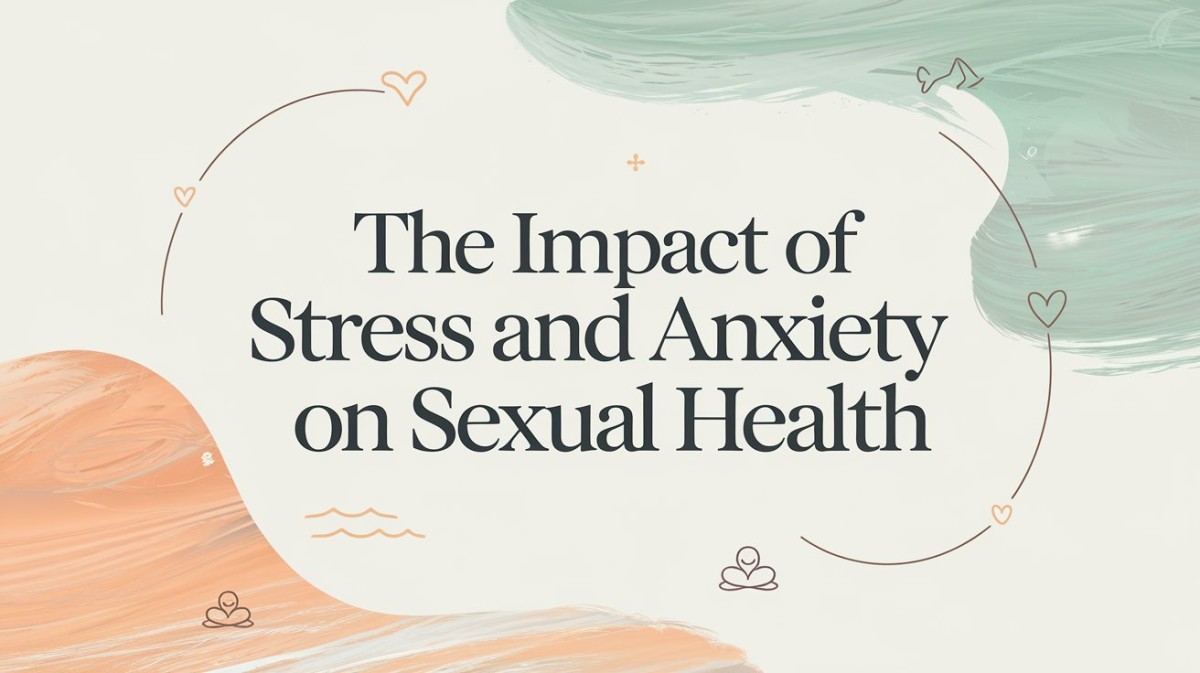There is a saying that whenever stress and anxiety walk, they always hold hands with you regardless of your activities or lack of it; that even include your intimate relationships. The general public is not well informed that psychological factors could significantly influence the state of sexual health. The impact stress and anxiety manifests in a variety of symptoms including a lowered drive for intimacy and difficulties in interpersonal connection.
1. Understanding the Link Between Stress, Anxiety, and Sexual Health
This relationship between the mind and body is well understood and becomes more intense in sexual health matters. Whenever we are stressed or anxious our body goes on ‘Alert Mode’ and the hormones released are cortisol and adrenaline. This reaction is useful in high pressure situations, however, stress can lead to constant release of these hormones that are damaging to the body in a variety of ways including decline in the sexual health.
Physical Impact of Stress on Sexual Health
Cortisol also known as the stress hormone,can reduce testosterone in men and estrogen in women, as these hormones are very instrumental in sexual desire. Cortisol secretion has a negative impact on libido, pleasure, and sexual function for both partners; the man will have erectile dysfunction, and the woman will not lubricate adequately.
Psychological Effects of Anxiety on Sexuality
A performance anxiety particularly in intimate relations leads to self-doubt, and cycling of fear during moments of intimacy. People suffering from anxiety may develop a focus on failure or feelings that they are not competent enough to deliver when the moments come; this brings about dread not anticipation for intimacy. This anxiety not only decreases, pleasure but also makes one avoid any sexual experiences at all further affecting the relationships.
2. The Toll on Relationships

Communication Breakdown
Practically everyone develops stress in their day-to-day activities, and the resulting effects are increased irritability, impatience, and frustration a factor that straining almost all close relationships. When one feels pressured, little or no communication may be possible on feeling carrying needs and or desires. This failing is all the more surprising as communication ensures comprehension, prevents the development of rivalry and distances, and allows regaining intimacy.
Avoidance and Withdrawal
When stress and anxiety build up over time, most people start avoiding each other and avoid talking about the problem. The emotional and physical barriers can cause a number of problems, because both partners can perceive coldness and aloofness as a lack of attraction and passion. It can lead to a cycle within a relationship where both partners feel loneliness, and over time will compromise more the intimacy and trust.
Erosion of Self-Esteem
There is the correlation between self-esteem and sexual health. Stress and anxiety always compel a person to be very much harsh on themselves, and these feelings conspire to produce feelings of low self-esteem and inadequacy. It also undermines the self-esteem, such feelings of insecurity may be greatly amplified in the bedroom resulting to decreased intimacy and pressure on the relationship.
3. The Physical Manifestations of Stress on Sexual Function
Erectile Dysfunction and Reduced Libido in Men
Many men suffer from erectile dysfunction , and chronic stress is one of the most common risk factors for it. High cortisol levels affect testosterone levels in the body as a result negatively affecting libido. ED can cause anxiety about sexual performance, and since stress is a leading cause of ED, stress can worsen the situation it has helped to bring about.
Reduced Arousal and Painful Intercourse in Women
In women, stress and anxiety have dire consequences that lead to reduced sexual desire, vaginal dryness, and pain on intercourse. The physical discomfort may often result to avoiding intimacy and this can cause a loop of stress around the intimacy areas. With time, even if one anticipates pain or discomfort, sexual desire may be eradicated completely making intimate relationships quite challenging.
Fatigue and Energy Depletion
Cortisol stress and anxiety are other leading causes of fatigue, which would leave persons with very little energy or desire for sex. If stress saps mental and physical strength, than getting into the mood for intimacy can be fraught with exhaustion. That lack of energy does not only result in the lack of sexual desires as well as feelings of regret and resent in relationships.
4. Stress Management for Enhanced Sexual Health

The good news is that how to approach the issue of stress and anxiety may also significantly reduce some of these adverse effects on sexual health. Here are a few effective strategies:
Mindfulness and Relaxation Techniques
Techniques such as body scans, breathing exercises and guided tension/release of muscles are effective in reducing stress response. These techniques also assist in enhancing notion of the body making it easier to pay attention to the physical signs and derive pleasure in intimacy without stampeding thoughts.
Open Communication with Your Partner
It will also be productive to discuss the contributing cause of stressors in the relationship and how they affect the intimacy of the couple. Expressing the concerns and emotions and making the partner know how you feel will help in improving the bond you have and this can make the sexual experience better. It can be helpful to ask each other questions about these topics and just share those things with each other.
Exercise and Physical Activity
Regular exercise on its part helps relieve stress and anxiety by releasing mood elevating hormones known as endorphins. Riding a bicycle, taking a brisk walk, swimming, jogging, doing gymnastics, yoga not only or reduces stress but also improves the general stamina and blood supply to the organs, thus, sharpening and improving the sex life.
Therapeutic Counseling and Stress Management
At other times it may require the assistance of a professional to help in tackling stress and anxiety that has persisted. By seeking a sex therapist, counselor, or even a licensed psychologist, people are able to have someone to talk to, and work through their stressors. Sequel to marriage counseling, many therapists often work wit couples on stress reduction, mindfulness, and intimacy restoration including sex therapy.
Focus on Self-Care and Sleep
As we all know cliché but absolutely true, quality and good sleep play a major role in one’s health and also sexual health. Having a good diet of eating, getting enough sleep and engaging in relaxation exercises can help normalize hormonal imbalance and manage all kinds of low libido in the longer run. Effective stress prevention and confidence building and positive thinking and feeling are best practices in the context of self-care practices.
For more such related content, check out our blogs on Mental Health Issues.
5. Final Thoughts: Stepping Back to Sexual Health under Stress and Anxiety
Stress as well as anxiety in the society has become a norm, however, it’s effects to sexual health can be eliminated. Professionals can gain an understanding of how stress and sexual health are intertwined if the client acknowledges the link between one’s state of mind as well as sexual health. There are therefore many ways in which one can lessen stress and how it affects ones intimate life through practicing mind full ness canIsH other ways of communicating or even seeking professional counseling.
Reaching Out for Help
In the event that stress or anxiety happens to be unmanageable always seek the help of a professional. See a therapist or counselor, explore options that give affirmation that one had control and develop positive ways of thinking that works for the mind and for sex. Remember, healthy sex is incorporated in healthy living, and spending some efforts and dollars in managing stress can be money well spent in the long-term.
Stress and anxiety are perhaps the biggest culprits for the breakdown of intimacy in couples and treating these issues can lead to renewed passion in even the most barren of marriages.
